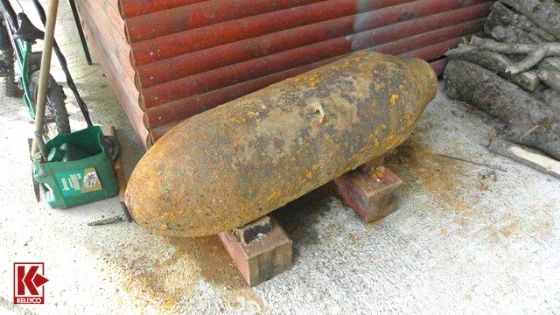How to Stay Safe While Metal Detecting
Published by Carolyn Yohannes on 02/18/20
Metal detecting is an exciting hobby. You’ll find all kinds of things you can brag about to your friends. From Civil War relics to valuable coins and jewelry — not to mention finding gold — your finds can sometimes cover the cost of your detector. Metal detecting is something that the intellectually curious and adventure seekers flock to. Take a few precautions to stay safe while metal detecting.
Metal Detector Accessories

First Aid Kit
Every detectorist needs the right metal detector accessories. That includes a first aid kit, bug spray, sunscreen, and plenty of water and snacks. You’ll also need some good gloves. Metal objects can be sharp, so get a pair that are either dipped in latex or polyurethane coated. You should also consider bringing a pinpointer like the Garrett Pro-Pointer AT Waterproof Pinpointer or the Minelab Pro-Find 35 Pinpointer. This will help to avoid unnecessary digging through sharp objects.
Bring a set of walkie-talkies as well. It’s easier to ask for help with the push of a button if you need it, and you may also not have cell reception in some areas. Hunt with someone else when possible, but if you don’t, make sure to tell someone exactly where you’re going.
Other metal detector accessories to bring include:
Stay Safe While Metal Detecting Despite Dangers
Even the most scenic areas can have hidden dangers. Watch out for snakes, especially in warmer climates. Snakes tend to hide in brush piles and firewood. Wasps, hornets, bobcats, bears, you name it… they’re all out there. Be aware of your surroundings at all times.
Watch out for swift currents when you’re detecting in or around water in order to stay safe while metal detecting. Avoid getting heat stroke by drinking lots of water and staying in the shade, and dress in layers during the cooler months. If you metal detect in the woods, you’ll encounter thorns and other potentially painful things, so be careful.
Unfortunately, you may also encounter needles as you dig. Your gloves should protect you from that danger as well. Avoid touching anything that could be connected to drug use, including old bottles and hoses.
Metal Detector Finds

WWII Bomb
Relic hunters often detect old battlefields, which means there are lots of old artillery shells, bullets and other unsafe metal detector finds. The shells could still be live, so dig carefully. The same can be said of old grenades and even bombs. In Europe, people find grenades and bombs more often than in the U.S., but you never know where the military may have tested weapons.
If you register a large chunk of iron with your metal detector, don’t hit it with a shovel. If you do see that you’ve uncovered a grenade or weapon, stop digging immediately and contact the authorities. Do not dig it up. They’ll be able to properly dispose of it so that you can stay safe while metal detecting.
Dig slowly and methodically as you detect to avoid setting off any accidental explosions in battlefields.
Sharp edges on old pieces of metal can pose a danger, too, so be sure to wear your gloves.
Encountering Other People While Metal Detecting
Always be aware of other people as you’re metal detecting, especially if you’re detecting alone. Have a way to contact someone quickly in case of emergency, and bring something with you to protect yourself.
To avoid unnecessary confrontation with land owners, always be sure to ask permission before you metal detect on private land. It’s important to know the laws before you start detecting.
Final Words
The most important thing in all situations is to be aware of your surroundings in order to stay safe while metal detecting. Observe other people, listen and watch for wild animals, and go slow. Don’t mess with any weapons, whether they’re historic or recent. Always contact the authorities and let them deal with it.
